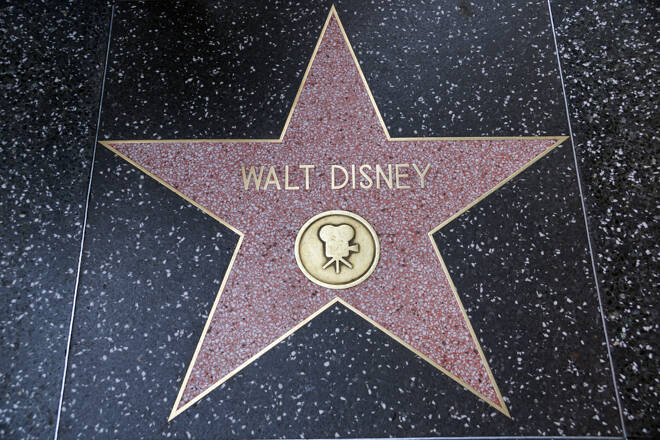Advertisement
Advertisement
Walt Disney Accumulation Drops to 8-Month Low
By:
The Delta variant is likely to impact revenue, with nervous folks pulling back from movie attendance and reconsidering trips to theme parks.
Dow component Walt Disney Co. (DIS) reports Q3 2021 earnings after Thursday’s closing bell, with analysts looking for a profit of $0.55 per-share on $16.76 billion in revenue. If met, earnings-per-share (EPS) will mark a 687% profit increase compared to the same quarter in 2020 when movie production, theme parks, and cruise ships were shut down. The stock fell 2.6% in May after missing Q2 revenue estimates and has failed to recoup those losses in the last quarter.
Over-Optimism and Renewed Headwinds
Shareholders are growing nervous with the stock’s lackluster performance, dropping accumulation readings to 8-month lows. Disney is down 3% so far in 2021, highlighting overly-optimistic post-COVID expectations. The Delta variant isn’t helping matters, with nervous folks pulling back from movie attendance and reconsidering trips to theme parks. Weaker-than-expected The Suicide Squad box office last weekend may reflect this growing caution.
Similarly, MKM Partners analyst Eric Handler noted the initially strong box office for Black Widow in July but admitted that “we are also a bit disappointed with how box office expectations for Black Widow seemed to taper off a bit as the weekend progressed, much of which we would attribute to cannibalization from Disney+ Premier Access also showing the film and taking in a solid $60mn (a global number but one which heavily skewed towards North America)”.
Wall Street and Technical Outlook
Wall Street consensus stands at an ‘Overweight’ rating, based upon 21 ‘Buy’, 2 ‘Overweight’, 5 ‘Hold’, and 1 ‘Underweight’ recommendation. Price targets currently range from a low of $147 to a Street-high $230 while the stock is set to open Tuesday’s session more than $50 below the median $212 target. This disconnect with Main Street investors highlights the growing impact of the Delta variant and deceleration of Disney+ subscription growth noted in the Q2 report.
Disney topped out at 153.41 after the launch of Disney+ in November 2019 and fell to a 6-year low in March 2020. The subsequent recovery wave mounted the 2019 peak in December, setting off a strong uptrend that posted an all-time high at 203.02 in March. A selloff into May found support in the 160s but the stock has failed to capitalize on that bounce, treading water while investors await the impact of renewed headwinds and the latest streaming numbers.
For a look at all of today’s economic events, check out our economic calendar.
Disclosure: the author held no positions in aforementioned securities at the time of publication.
About the Author
Alan Farleyauthor
Alan Farley is the best-selling author of ‘The Master Swing Trader’ and market professional since the 1990s, with expertise in balance sheets, technical analysis, price action (tape reading), and broker performance.
Advertisement
